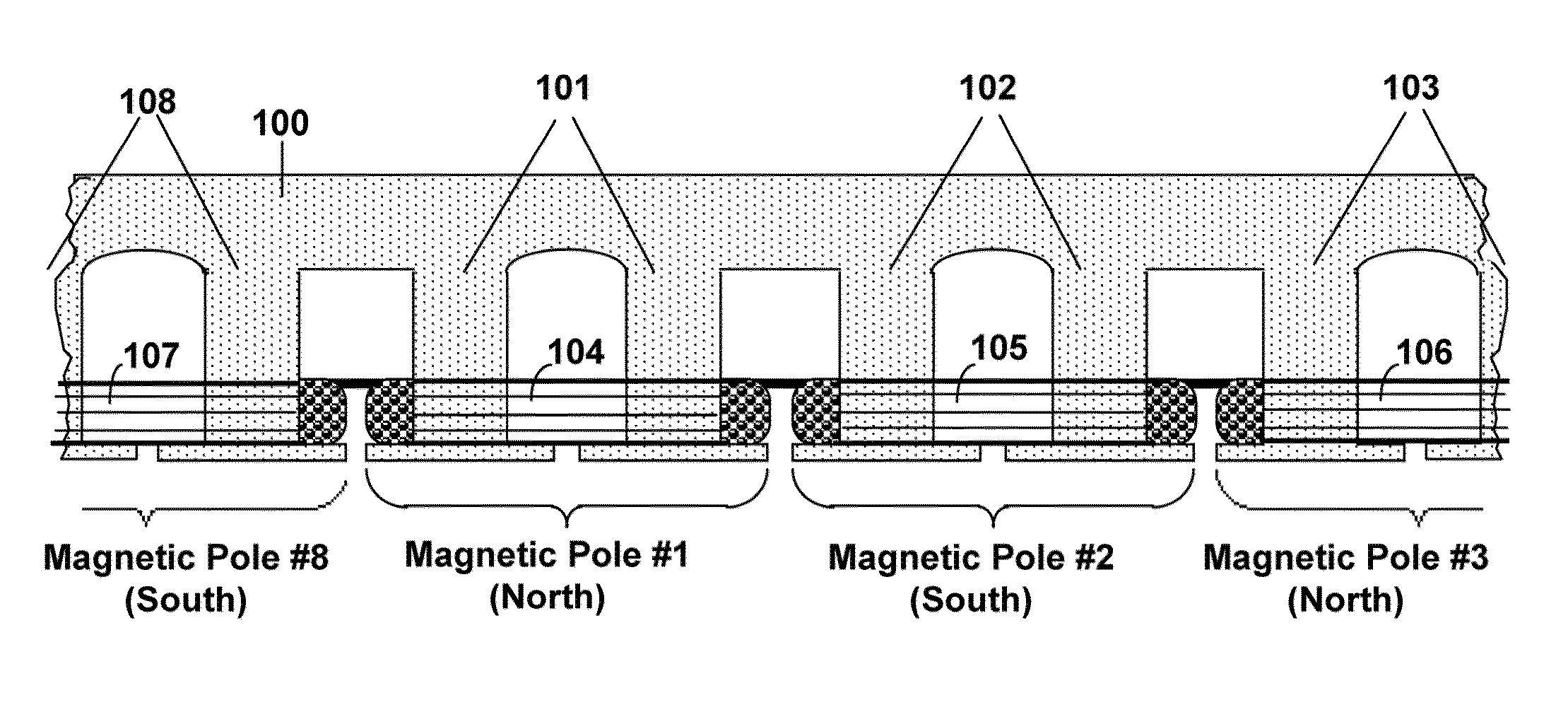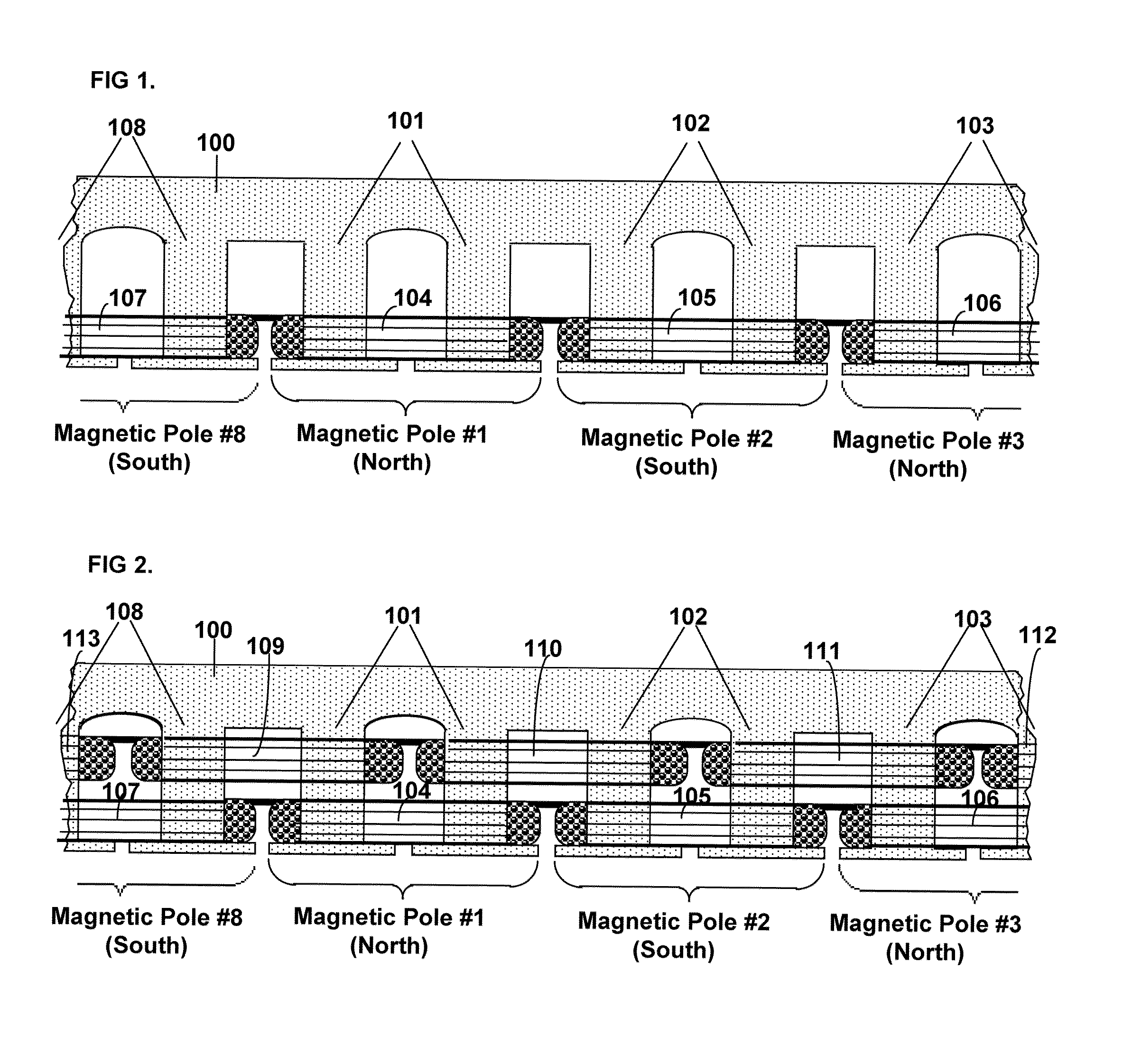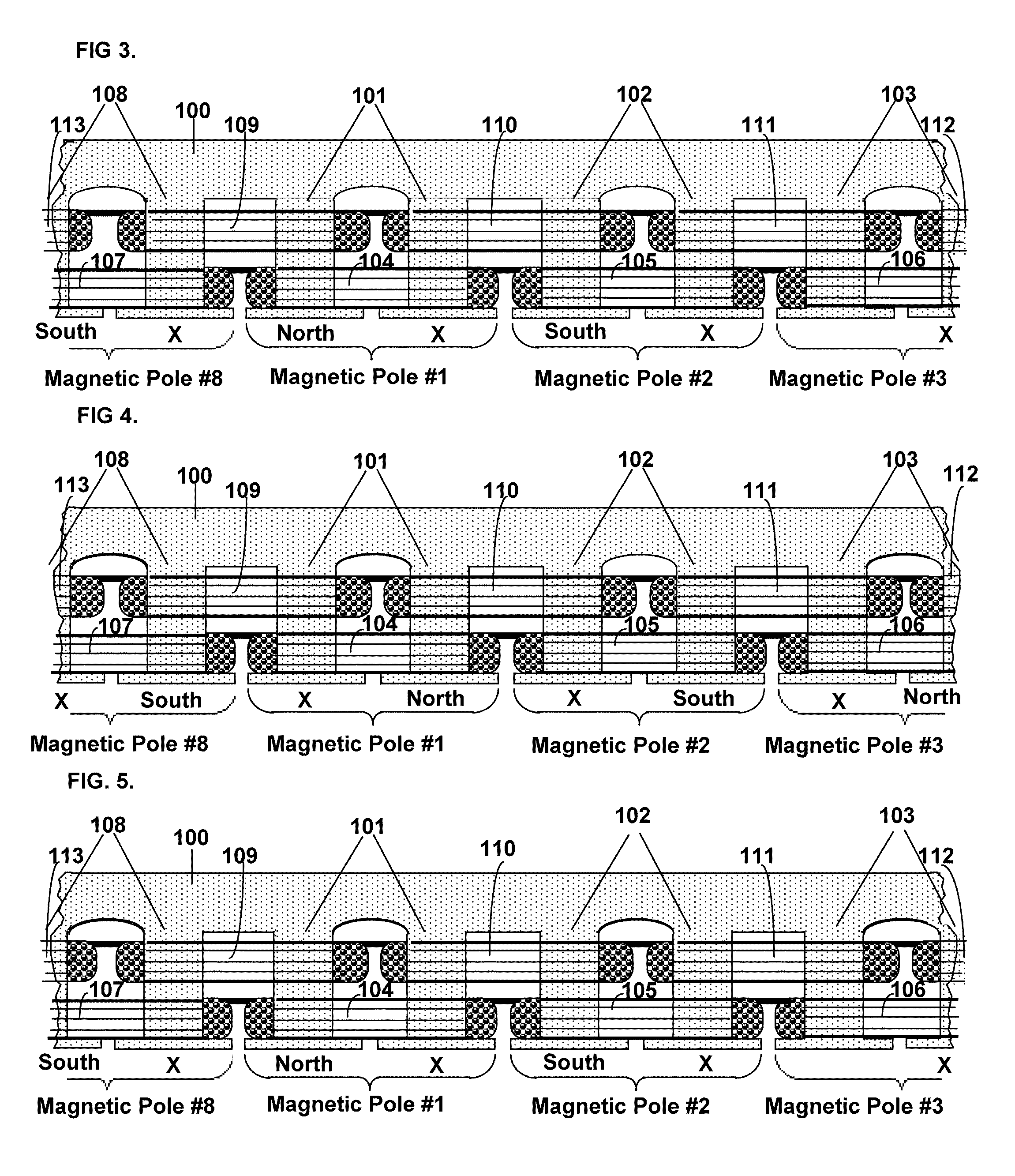Starting system for salient-poled-rotor electric motor
a technology of electric motors and starting systems, applied in the field of electric motors, can solve the problems of poor starting torque, poor running characteristics, and slight unbalancing of attractive magnetic forces, and achieve the effect of substantially maxim substantially minimizing the torque between the rotor and the stator
- Summary
- Abstract
- Description
- Claims
- Application Information
AI Technical Summary
Benefits of technology
Problems solved by technology
Method used
Image
Examples
Embodiment Construction
[0035]Referring to the drawings, the present invention will now be described in detail with reference to the disclosed embodiment.
[0036]In this disclosure, the effect of the invention will be called the Field-Match effect. The reason for the use of the word “match” is that it has two near opposite meanings: one which means “to agree, to be alike” (which we will designate “match1”) and another meaning which means “to oppose”, as in a “football match” (which we will designate “match2”). The torque produced by the stator on the rotor of the Split-Pole Field-Match Motor is caused by a unique design in which two coil fields of near equal value are matched on a single stator pole, alternately, in both senses of the word “match”.
[0037]First, they are “matched1” in one part of the electrical phase as like-fields on the same pole which series and causes the pole to exert a magnetomechanical force on a laminated, ferrite, salient poled rotor; then the coils are “matched2” as opposing fields o...
PUM
 Login to View More
Login to View More Abstract
Description
Claims
Application Information
 Login to View More
Login to View More - R&D
- Intellectual Property
- Life Sciences
- Materials
- Tech Scout
- Unparalleled Data Quality
- Higher Quality Content
- 60% Fewer Hallucinations
Browse by: Latest US Patents, China's latest patents, Technical Efficacy Thesaurus, Application Domain, Technology Topic, Popular Technical Reports.
© 2025 PatSnap. All rights reserved.Legal|Privacy policy|Modern Slavery Act Transparency Statement|Sitemap|About US| Contact US: help@patsnap.com



